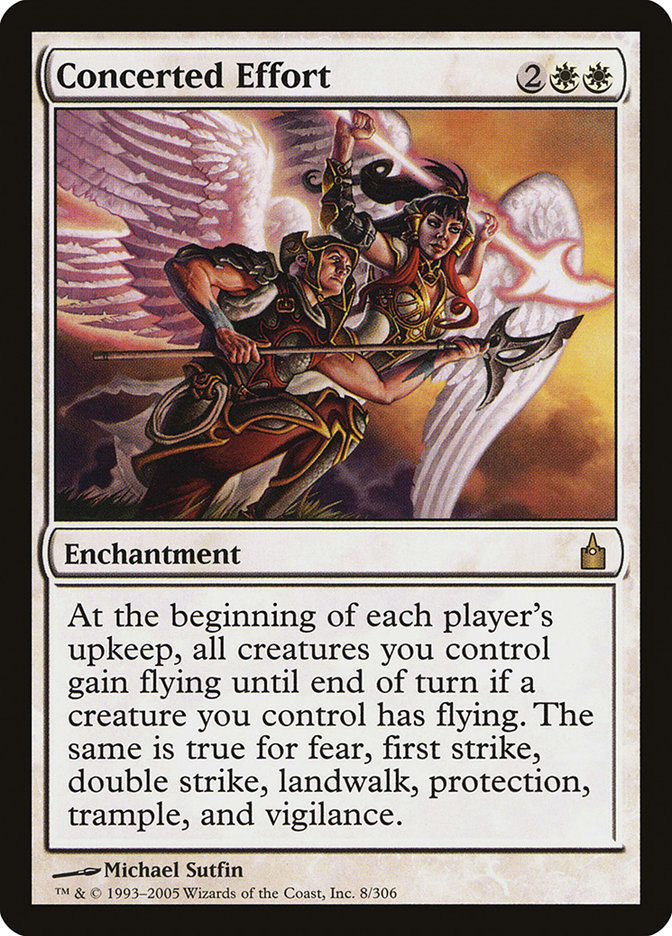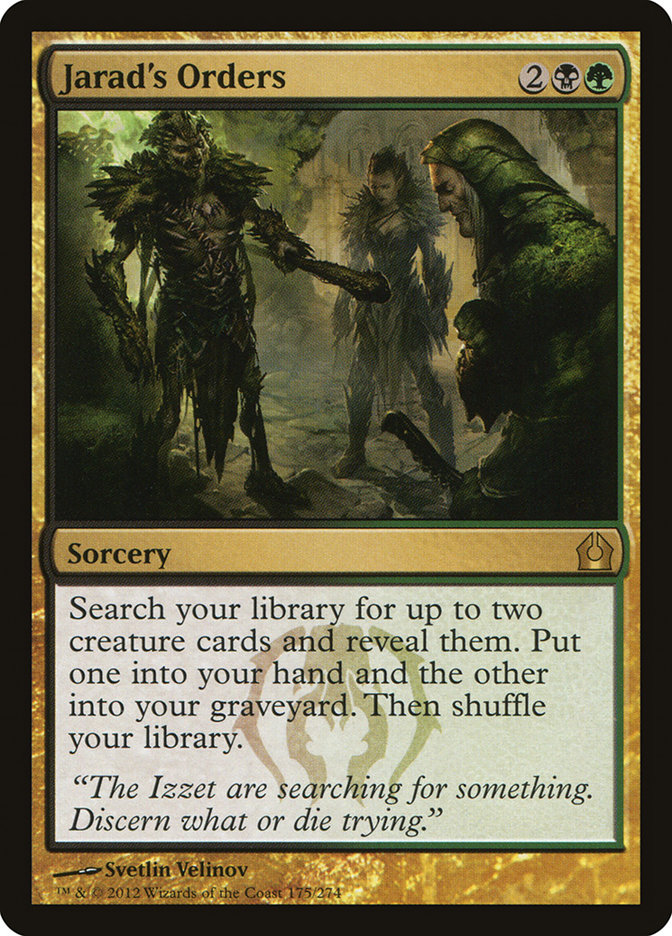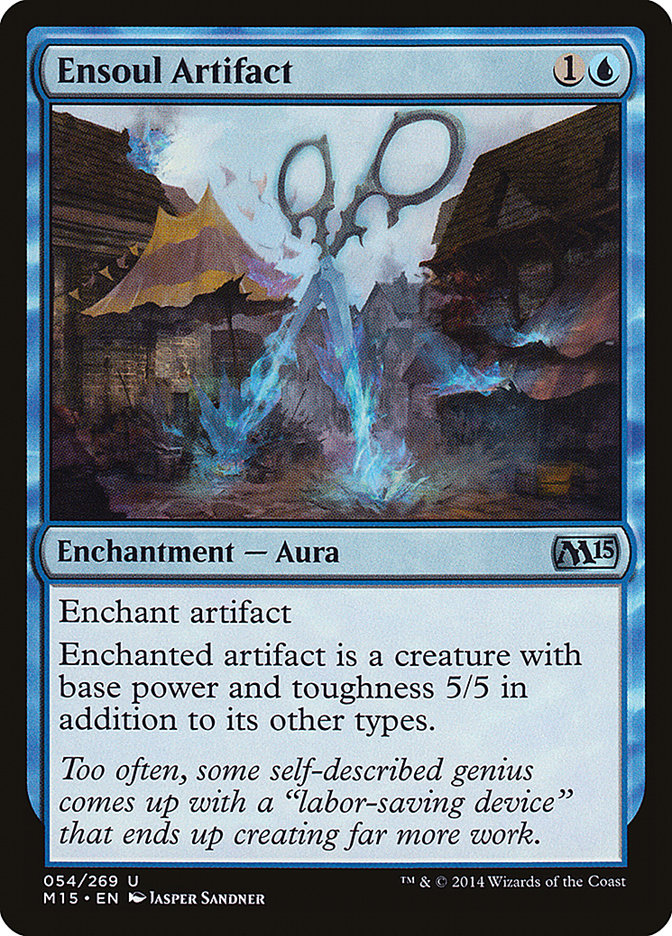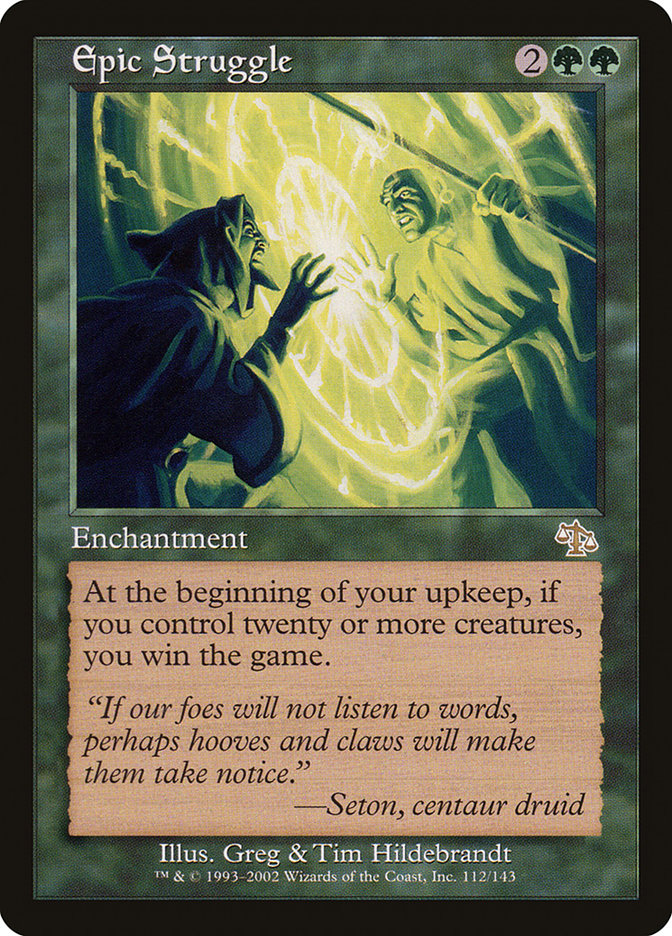I noted last week just how important my testing team was for my success as a Magic player. Everywhere we look at major Magic events, we see testing teams presented to us as if they were professional sports teams, often with matching apparel. Whether it’s the Pro Tour or the SCG Tour®, these teams of players form with one common goal of achieving success at the highest levels.
As someone who spent a long time playing Magic without a true testing team, I have come to see the importance of a team, and certainly been very fortunate in reaping the rewards of my team’s hard work. I think it’s important to anyone’s goal of leveling up to have a focused testing group to help each other reach that next level. It doesn’t necessarily have to be a group preparing for a specific event; it can just be a group of friends who playtest together to improve overall.
With Standard and Modern both on the verge of complete overhaul, thanks to Shadows over Innistrad and the rotation in Standard and an impending banning of something out of the Eldrazi decks in Modern, there is a lot of work to be done. If you’re planning to have some success in a tournament with one or both these formats, say the #SCGINVI in Columbus , #PTSOI, or any other event exploring new formats in general, it’s a good time to start considering getting together to prepare for these formats.
I have personally always wondered what it looked like from the inside of a big-name professional team of Magic players. Now, having witnessed it, let me share with you some of the steps they take to have success at the highest level, and maybe some things you can do to improve your own process.
Organization
The first part of any team testing involves the logistics. Usually this will begin with an online forum such as a group on Facebook. Once the group is finalized, there are a few questions to answer. Who is preparing together? Where will we gather? When will we gather? Who’s going to figure these things out?
Generally, we like having one person who is willing to bite the bullet, preferably someone who is organized and likes doing this kind of thing. This person can arrange options for the group to talk about or vote on. It doesn’t necessarily have to be one person as much as one place, such as the online forum, to share these ideas. Can we play at a teammate’s house? Can we stay there? Should we stay in a hotel? If we do, where will we play? Should we rent a conference room, or do we have enough space elsewhere? Maybe we should rent a house? All of these questions should be answered prior to meeting so that, once together, you can focus on playing Magic and testing ideas. It can become very distracting to figure this kind of stuff out after the fact and is a giant time sink.
Once this is all figured out and agreed upon, if there are any group costs, agree upon a way to pay for them and continue on to discussing the goals of the team. If there are going to be costs to the group, it’s important to let people know. No one should be left out of this discussion because we all have different situations financially and some may be willing to spend more or less than others, so have this discussion amongst yourselves and come to a reasonable conclusion.
Having one person who is both capable and willing to take on these organizational tasks is a huge bonus because it alleviates a lot of the pressure on the other players, allowing for more productive talk throughout the process.
Pre-Testing Preparation
Before the test group begins to meet, there are a few things that can be done individually in order to make the process go smoothly. Deck ideas or thoughts should be posted online for discussion. My team and I meet up for two weeks prior to a Pro Tour, which is quite a bit of time to play Magic. Realistically, most people can’t take this much time from their friends, families, and jobs to focus solely on Magic, so it’s important to save time when we can. That said, in the interest of saving time, we like to build physical decks prior to arrival. These will usually be stock decks from recent tournaments. You may hear people refer to this as a “gauntlet.”
The purpose of building this gauntlet is to be able to use these decks to test any new decks or ideas against. We rarely ever change these decks; even when we improve upon a deck, we like to leave some copies of them stock because it is important to test against what you expect to play against to get accurate results for a deck you are working on.
Another step you can take prior to actually meeting up is to test some brews for a few games and scrap them before arrival if they aren’t functioning well. This is a difficult thing to judge. I have read and heard many times that people should give up on brews early in testing. I firmly disagree with this statement, especially if you have a strong knowledge of current stock decks. I will get into this later, however. In these early stages, if you have a deck you put together, have the time to play some games with it prior to arrival, and find out that it’s simply just not good, then scrap it and move on so you’re not spending valuable testing time on a deck that doesn’t have legs.
Another part of pre-testing preparation is to establish a place to track results of testing. This is usually easy to do in any forum you have built for the team. It’s important to track results, especially when playing a brew against stock decks. Not everyone on the team will be doing the same thing, so it’s important for someone not playing a brew to be able to look at results to see how it’s stacking up against the predetermined gauntlet.
Communication and Delegation
Communication is fundamentally the most important element within a team. Without proper communication, work gets done and done over and the players on the team will keep going in circles. Use the aforementioned online forums to discuss issues and assign tasks. Discuss what has been worked on, what needs to be worked on, and how best to approach who does what.
Constant communication is necessary for a team to work. One of the most frequently asked questions I notice in testing is, “If the tournament were tomorrow, what would you play?” This question is just to gauge others’ perception of the format and how they are understanding what they’ve learned. Usually we are all working on different decks, maybe partnered up with someone else, so asking this question can help you figure out if you’re all reaching similar conclusions.
Take time to talk amongst the team about everything going on. It’s not just about playing games; it’s about learning. If specific people are working on a specific deck or archetype, have that person or persons make a post every now and then on the forums about anything they’ve learned for teammates to read later. I will usually read or write these posts before bed or when I wake up, as a way to empty my mind of what I’ve learned and try to absorb what my team learned before starting a new day.
Communication and delegation go hand and hand because it’s important, especially if people are working on different things, that everyone has access to what others have learned during the testing process. When it comes to brews, don’t have an entire group or team of people working on them. Have some people working on brews while others work on tuning more stock decks. If someone is better-suited to tuning decks than creating them, let them do that; if they are more interested in working on a brew and there is still time, they should do that. It’s generally pretty simple to delegate tasks amongst a team. Just make sure it’s being done in a fair and productive way. While delegating in this manner, if a brew fails, you have a nicely tuned stock deck at the ready that your teammates had been working on for the team to fall back on.
Stock Decks/The Gauntlet
When I initially arrive for testing, we always have some stock decks built, as I previously mentioned. We usually play a bunch of games with these decks against each other to figure out the feel of the decks and matchups. The amount of time you want to commit to this should be directly affected by how well the group knows these decks.
I generally spend the first few days doing this of my two-week time period. If you’re all very familiar, move on and do something more productive with your time. It’s important to know not just how your decks operate but also how the other decks in the format work, to reach an understanding on how these decks tick and the best ways to attack them.
While playing these decks, note things you like and dislike and discuss ideas on to how to improve these decks. This is all part of the tuning process. This can be done in-person and later discussed in the forums so that everyone has access to the thoughts of the group. Later, you can use the information when you tune the deck so it’s ready for the specific tournament you’re preparing for.
Two of the biggest mistakes I’ve seen in team testing are devoting too much time to playing stock decks against each other and not playing enough with them to reach an understanding of the format. Sometimes there will be tournaments where there are no stock decks because it is the first week of the format. In this case, just try to do your best to pin a metagame down or simply try out new ideas and find which one you think is best. If you spend enough time, you can really get an understanding of where people may go within a format.
Brews
There is a delicate balance to working with brews. Sometimes a deck is almost there and you spend a ton of time on it, just to be let down. Other times the deck is just outright bad and it’s easy to part ways with it. And then there are the times you find the deck. This is much rarer, but after playing Eldrazi at the last Pro Tour, let me tell you, these decks are extremely gratifying to come across.
Sometimes a deck is close, and when it is, I highly suggest working on it. Owen Turtenwald told me after #PTOrigins that he had played some games with a Thopter deck and won eight out of his ten games but dismissed the deck because he felt it was too reliant on the card Ensoul Artifact. I would urge you to keep playing if your deck is winning. If the problem is you’re only winning when you’re drawing one card, then try to fix the rest of the deck, but keep at it. Identify the strengths and weaknesses of your brews and work on them. We almost made the same mistake with the U/R Thopter deck. We too thought the deck was reliant on the card Ensoul Artifact, but in reality the deck found other ways to win.
The Ensoul Artifact games were easy, so it was the rest of the deck that need to be tuned to be able to win without it. We even got to the point where Paulo Vitor Damo da Rosa insisted we track games in which we drew Ensoul Artifact separately from the other games. He was wary that perhaps we were all just drawing Ensoul Artifact more often than we might in the event and that would distort our results and deck choice.
I will say, however, there’s no bigger edge, in a major tournament especially, than having an off-the-radar deck. These teams of players spend weeks building decks and sideboards with stock decks in mind. When you show up with a stock deck, your opponent almost assuredly will have a plan to attack it. When you show up with an off-the-radar deck, your opponent is much more likely to make giant mistakes, both in the games and in sideboarding. For these reasons, I urge you to work on brews as long as someone is working on stock decks or more traditional ideas, so that there is a safe fallback plan.
Another important part about testing brews is learning new cards. A lot of brews are built with new cards in mind, cards that we haven’t gotten a chance to play with before. It comes up very often in my testing process that a particular deck was bad but a specific card was great. We can note this, communicate it to our teammates, and then try that specific card in other areas to see if maybe it has a different home.
Sideboard Games
I decided to give this segment its own section to highlight the importance of playing sideboard games. If you take away only one thing from this article, let this be it. This is one of the biggest traps I think most people fall into: simply not playing enough sideboard games. In the tournament, at least half of your games will be played with sideboards. Yet when I see people preparing, they often play very few sideboard games.
It’s especially important to play sideboard games with brews. If your brew is weak to specific popular sideboard cards, it’s important to find out early so you can dismiss the deck if it’s too weak because of said sideboard cards. In my team’s testing process, if we have a team deck, we often spend an entire week playing almost exclusively sideboard games to both work on the sideboard and see how we stack up post-sideboard against the gauntlet. In this time, we can actually tune our maindeck options to coordinate with sideboard plans we want to implement. It’s much easier to paint a picture when you have the paint and the brush.
Tournament Time
During the tournament is one of the best times to be part of a team. There’s a lot to be said for discussing new ideas other teams or people had and how to approach these new ideas you may have missed.
Information is fluid during the tournament, so it’s still important to communicate with each other. If someone is doing poorly, be their shoulder to cry on. If someone is doing well, keep them amped up to keep winning. By the time the tournament is cutting to Top 8, if your team was lucky enough to have one or more members in the Top 8, be sure to help them prepare for their Top 8 matches. I’ve been fortunate enough to have teammates stay up until five or six in the morning testing sideboard plans for me before big Top 8s while I got much-needed sleep. Winning a tournament as a team is almost as gratifying as winning it oneself. Rejoice in a job well done.
Post-Tournament Observation
After a tournament is over, successful or not, a team should figure out what worked and what didn’t in their preparation. This is an extremely important part of building a solid base of a team. People often repeat the same mistakes over and over and don’t ever figure out what they got wrong. Have a calm but serious discussion about what goals the team met, and what the team fell short on within the forums or perhaps at dinner after the event.
We are all always looking to improve. To do so we must be willing to criticize ourselves and find our strengths and weaknesses, not only as individual players but also how we function within a team.
There’s “Me” in “Team”
Individual contributions are what make a team successful. I too often see people let down by the fact that they didn’t get enough out of their preparation and think they deserve more. In reality, we should be asking ourselves how we can help our team or testing group improve, and figure out if there is anything we can personally do to achieve a more desired result. I urge you to keep improving as a player but also as a teammate, and the good results will follow.







